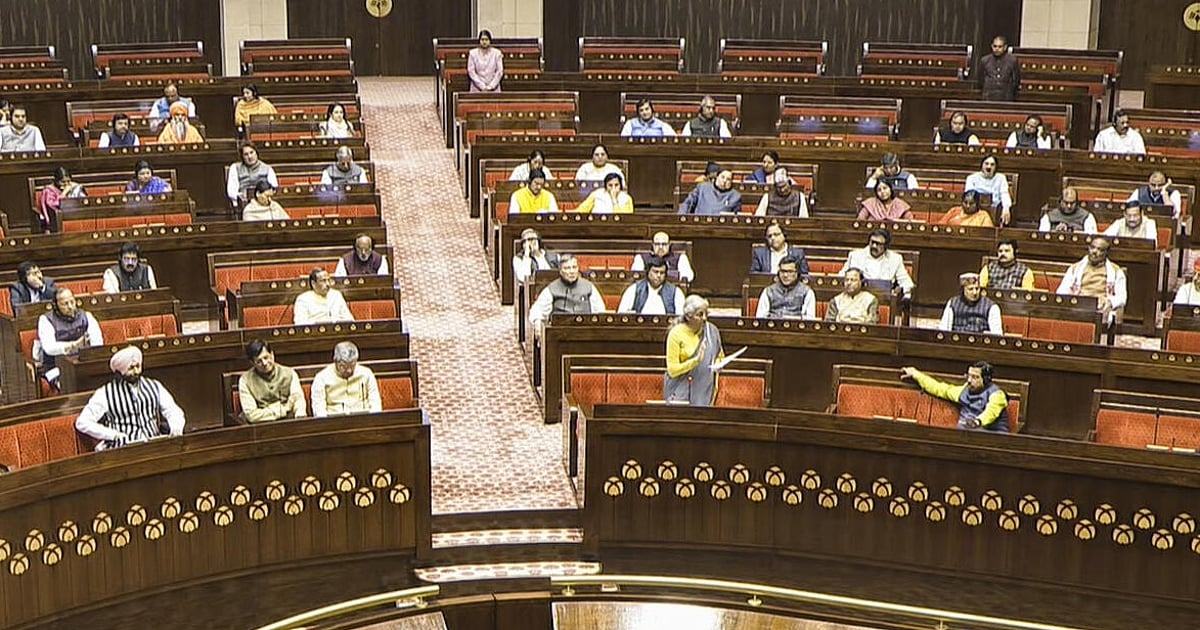 |
|
The Indian Parliament's Rajya Sabha, the upper house, recently concluded its discussion on the Union Budget presented by Finance Minister Nirmala Sitharaman. Following the conclusion of her reply to the debate, Deputy Chairman Harivansh announced the adjournment of the proceedings until March 10th. This adjournment marks a temporary pause in the legislative process, allowing for further considerations and potential revisions based on the feedback and discussions that have taken place during the budget session. The budget itself, a crucial annual document outlining the government's financial plans and priorities for the coming fiscal year, has been a subject of intense scrutiny and debate within the parliamentary chambers. This detailed examination reflects the significant role the budget plays in shaping the nation's economic trajectory and impacting various sectors, from infrastructure and healthcare to education and social welfare programs.
The adjournment of the Rajya Sabha provides an opportunity for lawmakers to review the implications of the proposed budget measures. The ensuing period may involve further consultations between government officials and various stakeholders, including representatives from industry, academia, and civil society. This process allows for a more nuanced understanding of the potential consequences of the proposed policies and enables adjustments to be made before the finalization of the budget. The discussions in the Rajya Sabha provide valuable insights into the perspectives of different political parties and their constituents, contributing to a more robust and responsive budgetary framework. The government's ability to effectively address the concerns raised during the debates is crucial for ensuring public confidence in the proposed budget and its potential positive impact on the nation's economic development.
The timing of the adjournment, scheduled for March 10th, suggests a strategic pause in the parliamentary proceedings. This period may be utilized for off-session negotiations, detailed policy analysis, and potentially the drafting of amendments based on the points raised during the debate. The interval could also allow the government to gather further data and engage in more extensive consultations to refine various aspects of the budget. The length of this adjournment indicates the complexity of the budgetary process and the need for comprehensive evaluation before proceeding with the final implementation of the proposed measures. The outcome of these deliberations and any subsequent amendments will significantly shape the economic landscape of India for the coming year, influencing investment decisions, economic growth, and the overall well-being of its citizens. The seamless passage of the budget, post-adjournment, will be an indicator of the government's ability to effectively navigate the diverse range of views within the legislative body and achieve its budgetary goals.
The Union Budget plays a vital role in shaping India's socio-economic trajectory. It is an instrument of fiscal policy, influencing resource allocation across various sectors and reflecting the government's priorities for the year. The Budget process is inherently political, involving significant debate and negotiation among different stakeholders. The success of the Budget relies on the government's ability to articulate a clear vision, manage competing demands, and ensure effective implementation of the proposed policies. The detailed analysis and discussions surrounding the Budget in Parliament are crucial in ensuring accountability and transparency. The involvement of various political parties and civil society groups adds to the democratic character of the process, ensuring that different perspectives and interests are considered. The budget’s impact extends beyond immediate fiscal considerations, also influencing social equity, environmental sustainability, and the country's long-term growth prospects.
In conclusion, the adjournment of the Rajya Sabha following the Finance Minister's budget reply is a significant development. It marks a strategic pause in the legislative process, allowing for crucial deliberations and potentially significant adjustments to the budget. The resumption of parliamentary proceedings on March 10th will be eagerly awaited, with the hope that the final version of the budget effectively addresses the concerns raised and contributes meaningfully to India's economic progress and the well-being of its citizens. The detailed debates and subsequent deliberations will ultimately determine the extent to which the budget achieves its intended goals and aligns with the country's overarching developmental objectives. The post-adjournment period will be critical in observing how the government responds to the discussions, addresses concerns, and finalizes the Budget for implementation.
Source: FM Sitharaman concludes reply on Union Budget, Rajya Sabha adjourned till March 10
